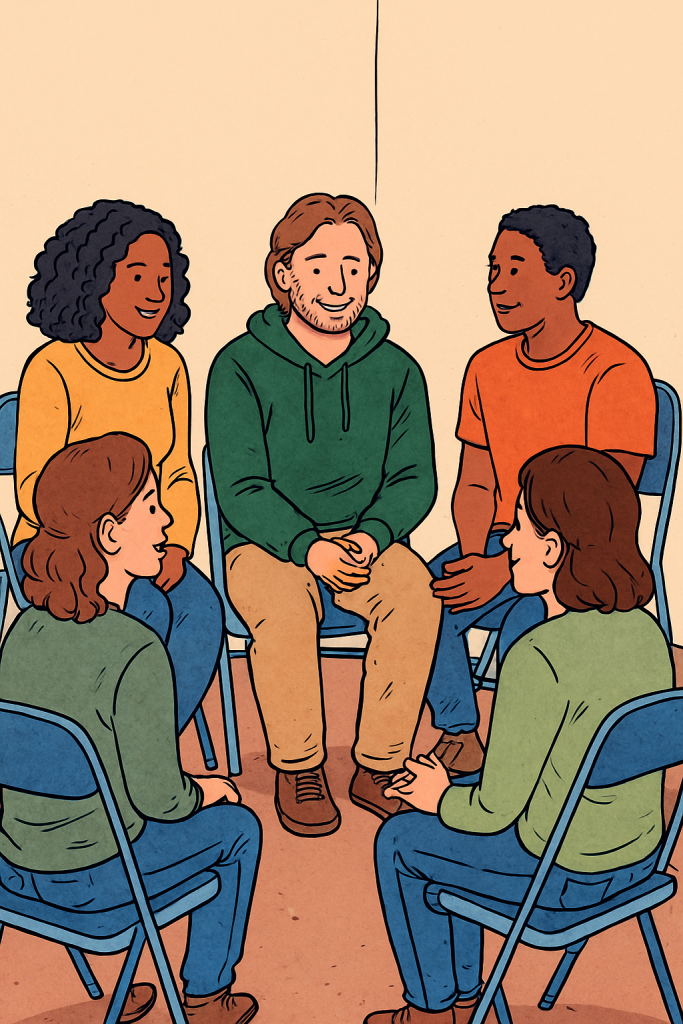Written by Andrew John Tucker, LCSW
www.addictiontherapynyc.com

When you first start treatment, everything feels urgent: survival mode, white-knuckle days, the adrenaline of “I’ve got to fix this.” Therapy is a lifeline, and it’s powerful. But when the crisis passes, that sharp edge dulls. The danger isn’t gone, it’s just quieter.
This is the moment that decides the long game. Because as good as therapy is, it’s not enough on its own. The truth is, we are social creatures. We need each other; especially in recovery. What starts in treatment becomes sustainable only when it’s lived with other people who get it.
We need places where we can talk about our flaws, our fears, and the old habits that used to drive us to drink or use……without judgment, without pretense. Whether it’s AA, NA, Dharma, SMART Recovery, church, or a small sober community, the only rule that matters is showing up and talking about what’s really going on. That’s where healing moves from being an idea into something alive.
Why Insight Alone Isn’t Enough
Therapy helps you understand yourself, and that’s huge. But recovery asks for more than insight; it asks for connection. And research backs this up: people who engage in ongoing social recovery through support groups, recovery coaching, or peer communities, are far less likely to relapse.
Studies consistently show that strong social support networks lead to higher abstinence rates and better emotional stability. Therapy builds self-awareness; connection builds resilience.
The Social Brain in Recovery
We heal in relationship. We test new behaviors in real time. We build confidence when we’re mirrored by others. Connection gives us:
- Accountability that keeps us honest.
- Belonging that replaces isolation.
- Support that normalizes struggle.
- Hope reflected back to us when we forget we have it.
When we isolate, we lose all of that. And addiction thrives in isolation.
Three Practical Ways to Strengthen Connection
- Find your community.
It doesn’t have to be 12-step if that’s not your thing…. just find a group where honesty is welcomed. Go regularly. Speak up. Let yourself be seen. - Add a peer.
A peer specialist bridges the gap between therapy and real life. They’re not there to analyze, they’re there to walk with you. - Create “anchor relationships.”
Build one or two relationships that keep you grounded; friends you check in with weekly, a sponsor, a mentor, even a faith community. Make those relationships a recovery practice.
Therapy helps you find your voice. Connection helps you use it. So don’t make recovery a solo project. Let people in. Let it be messy. That’s how this works.
If you or anyone you know might benefit from a free consultation with a Clinical Addiction Specialist, fill out the confidential form on my website www.addictiontherapynyc.com, and I will reach out to you within 12 hours.
